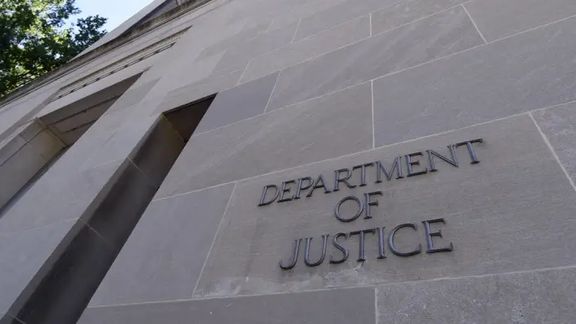US indicts Iranian American for exporting military components to Iran

The US Justice Department has indicted a 68-year-old Iranian-American for the illegal export of US-manufactured aircraft components, including military-grade parts, to Iran.

The US Justice Department has indicted a 68-year-old Iranian-American for the illegal export of US-manufactured aircraft components, including military-grade parts, to Iran.
Jeffrey Chance Nader was apprehended on Tuesday in California and according to the indictment, he conspired with others to purchase and illegally export nearly three dozen aircraft components from the United States to Iran. Many of the parts are crucial for the operation of military aircraft like the F-4 fighter jet, used by Iran's armed forces.
Assistant Attorney General Matthew G. Olsen of the Justice Department’s National Security Division emphasized the seriousness of the charges, stating, “This action demonstrates the Justice Department’s commitment to keeping military-grade equipment out of the hands of the Iranian regime. We will aggressively investigate, disrupt, and hold accountable criminal networks that supply sensitive technology to hostile and repressive governments in contravention of US sanctions.”
The sentiment was echoed by US Attorney Matthew M. Graves for the District of Columbia, who highlighted the broader implications of Nader’s actions.
“Attacks by Iran and its proxies on US allies in the Middle East and its ongoing supply of Russia with drones and other technology to be used in its illegal war against Ukraine demonstrate why we must do all that we can to stop Iran from acquiring US parts, services, and technology," he said.
The indictment reveals that Nader acted on purchase orders from customers in Iran, using his California-based company, Pro Aero Capital, to falsely present himself as the end-user of the components.
He attempted to ship the parts to the United Arab Emirates (UAE), where they were intended to be transshipped to Iran but were intercepted by US authorities, preventing the items from reaching their intended destination.
The case is part of a broader pattern of US law enforcement targeting networks that attempt to supply Iran with advanced technology. Just last week, the DOJ indicted two Iranians brothers Shahab Mir’kazei and Yunus Mir’kazei and a Pakistani national, Muhammad Pahlawan, for providing material support to Iran’s weapons program.
The US also recently announced a $10 million reward for information leading to the identification or location of six Iranian government hackers responsible for a series of cyberattacks on US water utilities last fall.
They are accused of compromising industrial control systems, specifically targeting the Vision series of programmable logic controllers (PLCs) produced by Israel-based Unitronics. These PLCs are extensively used across various sectors, including water and wastewater management, energy, food and beverage production, manufacturing, and healthcare.
According to a State Department statement, the six individuals, who are associated with Iran’s Islamic Revolutionary Guard Corps (IRGC) and its Cyber-Electronic Command (IRGC-CEC), are being actively sought in connection with the attacks.
Future prisoner swaps between the US and Iran could complicate the long-term impact of such indictments, however. In past instances, high-profile detainees have been released in exchange for some dual nationals held in Iran, raising concerns about the lasting efficacy of such legal actions.
In September, a deal was finalized involving the transfer of $6 billion in Iranian funds—previously held in South Korea—to banks in Doha. As part of the agreement, five Iranians were released from US custody, though three of them opted not to return to Iran.
Among the Americans freed by Iran were Siamak Namazi, who endured nearly eight years in Tehran's notorious Evin prison before his release.
An unknown number of dual-nationals are being held in Iran under trumped-up charges of espionage as the government continues its policy of diplomatic hostage-taking.